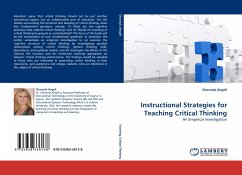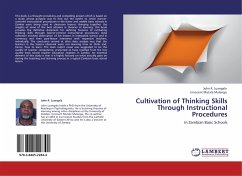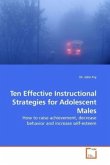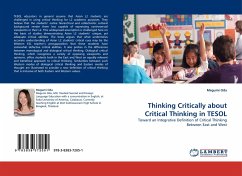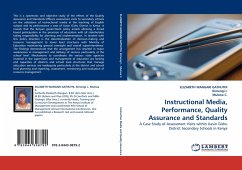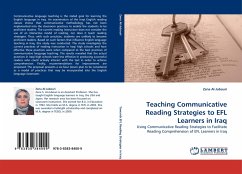Educators agree that critical thinking should not be just another educational option, but an indispensable part of education. Yet, the debate surrounding the construct and teaching of critical thinking raises two fundamental questions, namely: (1) What are the cognitive processes that underlie critical thinking? and (2) Should the teaching of critical thinking be general or contextualized? The focus of this book will be the examination of such fundamental questions. In particular, the author undertakes an empirical investigation to (a) examine the cognitive structure of critical thinking by investigating possible relationships among critical thinking, general thinking skills, dispositions, and epistemic beliefs, and (b) investigate the effects of the General, the Infusion, and the Immersion teaching approaches on learners critical thinking performance. The findings would be valuable to those who are interested in promoting critical thinking in their classrooms, and academics andcollege students who are interested in the subject of critical thinking.
Bitte wählen Sie Ihr Anliegen aus.
Rechnungen
Retourenschein anfordern
Bestellstatus
Storno

